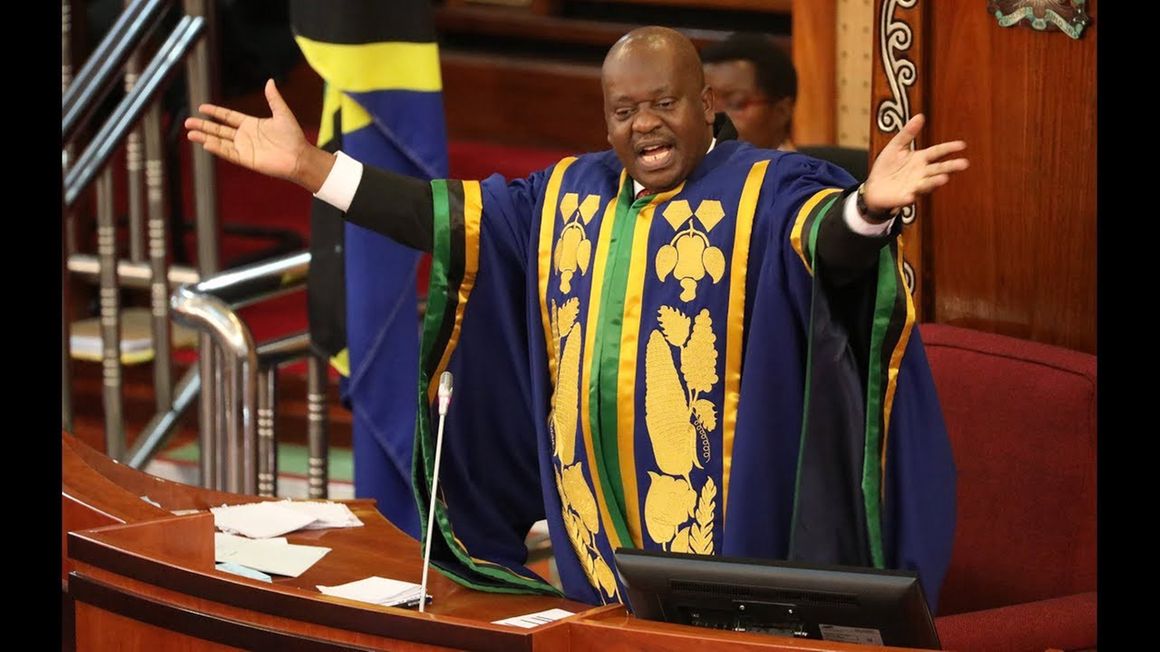COVER: Linah: The time was right to leave THT

New beginnings: Linah in a recent photo shoot with her new management team, No Fake Zone. After five years training she has finally left THT
What you need to know:
- Unlike the common perception the management at THT maintains they are not a record label and that is why they let the artistes leave
- $47,000: The amount of money that the singer says she spent on making of her latest video Ole Themba which was shot in South Africa and directed by Godfather
In 2009 when she was unveiled at the Tanzania House of Talent (THT) there was a consensus among the industry pundits that a diva had been discovered.
Though only a novice then with just a couple church gigs under her belt, her versatility and vocal range was something that the industry was yearning for.
It was confirmation that the second generation of Bongo Flava artistes had finally started rolling out female singers, something that had eluded the market since the days of Ray C and Lady Jay Dee.
She was out to fill the void that was constantly widening due to lack of talent in the conveyor belt.
Five year down the road Linah has finally found her feet, strong enough to start on her own without the support of the academy that discovered her.
Like a girl leaving her father’s home, her send off was something that many a student can only hope for as the industry stalwarts were all there to see her off.
She has found a management company and she feels it is just about the right time to take her music to the next level.
“No Fake Zone is a management company that is based in South Africa with a branch in Tanzania and I have the belief that they are taking me in the right direction,” says Linah.
Speaking to TheBeat this week Linah says it was more of a professional decision to venture out though at some point it causes nostalgia to leave her friends.
“THT was like a school and just like other institutions, the expectation is that scholars have to grow to a point where by you can stand on your own,” says Linah Sanga.
She adds that THT was a great place to be and that without them she wouldn’t have made it artistically as she learnt a lot of things from her teachers and colleagues.
“I remember the first day I stepped into the corridors of this place, I was with Ben Pol after we had won a singing contest which was on Clouds FM, it felt like a breath of fresh air and that is when I confirmed that I knew nothing,” she says.
THT roots
Her journey into secular music had begun because this win qualified her to be recruited at the THT. She was soon introduced to the group where she met some of Bongo Flava heart throbs.
“I was happy to meet people like Mwasiti, Amini and Barnabas who I used to hear on radio, this motivated me to work even harder,” she says.
Given her efforts and positive attitude, she was soon promoted to perform with the main band and in less than two months doing gigs with THT Band at different shows.
Later that year THT had a plan to take them for their debut studio outing to record their songs.
However, that did not come easy as the THT panel had to put her through a vetting procedure which ended in a nod for her to do a song written by Amini.
So as Barnabas recorded ‘Njia Panda’ and Amini recording ‘Robo Saa’, Linah was waiting in the wings to record ‘Atatamani’, the song which jump started her career.
“It was like a dream come true when I heard it played on radio, I really thank God for bringing me this far and I want to put more efforts in my talent,” she says.
Being famous in the industry has its price and this bothers her but thanks to her parents who, with time have come to accept her as an artiste, despite having disappointed them by taking a different path.
Ole Themba
She believes that the lack of young female artistes doesn’t mean there isn’t talent around but instead it comes down to the basics such as getting a credible management.
On the deal that finally sealed her move to NFZ management Linah says this is in her attempt to make the rest of Africa know that there is an artiste from Tanzania called Linah.
The release of ‘Ole Themba’ (My Hope) whose video was also done in South Africa has probably been a confirmation of a move towards that desired direction.
“This video was a very expensive project and being the first for me in that range it means I have learnt a lot of lessons that will act as a driving force for future projects,” she says.
The video which was also produced by Godfather according to the diminutive singer cost over $47000 which could well go down as a record for a female artiste in Tanzania.
Upbringing
Born and raised in a strict Christian family with a father who was at one time a pastor at Haven of Peace Church, it was not easy for her parents to accept her chosen path. Just like many successful musicians, Linah’s singing career started at a tender age of nine.
“I started singing back in the days when I was in Sunday school where I used to lead my fellow pupils,” says the third born in Pastor Peter Sanga’s family.
She was later to join their church choir where she was instantly promoted to the role of lead vocalist at the church where her father preached.
Each time she took the microphone to lead the Praise and Worship session the crowd would give a standing ovation.
Her break was to come when veteran musician and leader of the Super Matimila Band Remmy Ongala invited her to sing in her band after seeing her performance.
“One day, Remmy Ongala, heard me singing at our church and he was impressed with me, so he invited me to sing with his band then later we came to perform with him at the church,” says the songstress.
She has never looked back since then; the result was the recording of her first gospel track ‘Nimekukimbilia’.




